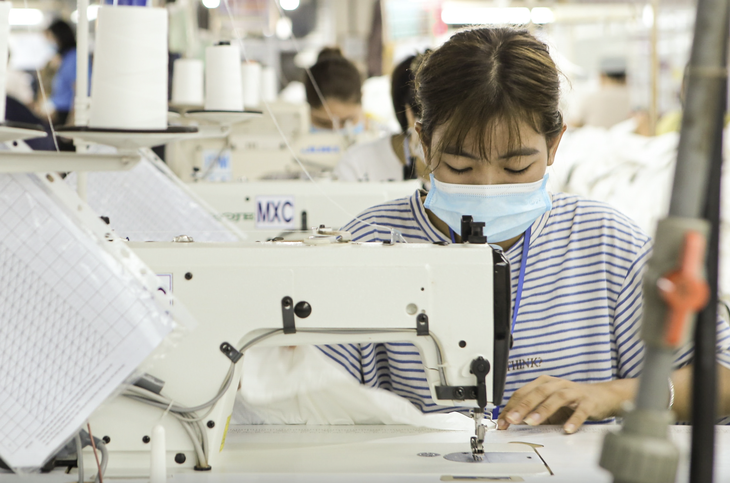
Workers at a garment company - Photo: HA QUAN
President Donald Trump's latest statement to the press is being seen by experts and Vietnamese textile and footwear businesses as a positive signal, in the context of the 90-day suspension of the application of reciprocal tax policies being implemented.
"Green light" for Vietnamese textiles, footwear?
Speaking to Tuoi Tre Online on May 27, Mr. Pham Xuan Hong - Chairman of the Ho Chi Minh City Textile, Embroidery and Knitting Association - commented that Mr. Trump's statement could be considered a green light for textile and garment exporters, including Vietnam.
According to Mr. Hong, apparel is still an essential commodity in the US market, and it is difficult to cut back on consumption despite economic instability. If Mr. Trump increases tariffs on this item, it could create a backlash as American consumers will be the ones to bear the price increase.
From a competitive perspective, Mr. Hong assessed that Vietnam has advantages over many other countries thanks to its stable bilateral relationship with the US, stable politics and skilled labor force. However, he also expressed caution: "We can be optimistic, but we still need to be cautious because trade policy under Mr. Trump is highly volatile."
From a business perspective, Mr. Pham Quang Anh - Director of Dony Garment Company - believes that the international trade situation may change after the US applies a policy of increasing reciprocal tariffs across the board. In that "new game", the country that is flexible and knows how to take advantage of opportunities will have the upper hand.
According to Mr. Quang Anh, Vietnam can completely create a turning point if it maintains stable tax rates and takes advantage of its geopolitical advantages and comprehensive cooperation with the US.
Regarding the leather and footwear industry, Mr. Nguyen Van Khanh - Vice President of the Ho Chi Minh City Leather and Footwear Association - also expressed optimism about Mr. Trump's new statement, and highly appreciated the opportunity to reduce taxes after the 90-day suspension.
Mr. Khanh emphasized that Vietnam has many favorable factors such as competitive prices and high flexibility in production.
Many experts believe that the potential benefits of Vietnam's textile, garment and footwear industry also come from the increasingly complete logistics infrastructure system, the development of seaports and a stable political environment - especially competitive factors compared to rival countries with cheaper labor costs such as Bangladesh.
"Hot" from now until the first half of June
According to experts' forecasts, the results of the reciprocal tax negotiations will begin to have a clear impact on Vietnam's textile and footwear industry from the second half of June 2025.
Since shipping time by sea from Vietnam to the US usually takes 30 to 45 days, businesses that want to deliver goods before July 9, when the temporary tax suspension ends, will have to ramp up production and complete shipping in the first half of June.
Therefore, many export enterprises are currently speeding up order fulfillment, renegotiating delivery schedules, and expanding their search for new markets to diversify risks during the "golden" 90-day period of tax suspension.
In addition to accelerating production, industry associations and experts also recommend that at present, international partners and customers are cautiously and closely monitoring trade developments.
One of the biggest core issues warned by experts is the high level of dependence on imported raw materials from foreign countries, especially China, making many Vietnamese businesses vulnerable to tariff shocks and geopolitical risks.
Mr. Pham Xuan Hong admitted that the ability to be self-sufficient in domestic raw materials is still very limited. If we do not improve our raw material supply capacity, we will always be passive in unfavorable trade scenarios.
Similarly, Mr. Pham Van Viet - Chairman of the Board of Directors of Viet Thang Jean Company - emphasized that self-sufficiency in raw materials and promoting domestic raw materials is no longer a matter of choice, but a vital requirement if Vietnam wants to maintain its role in the global value chain.
Source: https://tuoitre.vn/det-may-da-giay-viet-nam-trong-cho-cua-sang-sau-phat-bieu-moi-cua-ong-trump-20250527174551277.htm



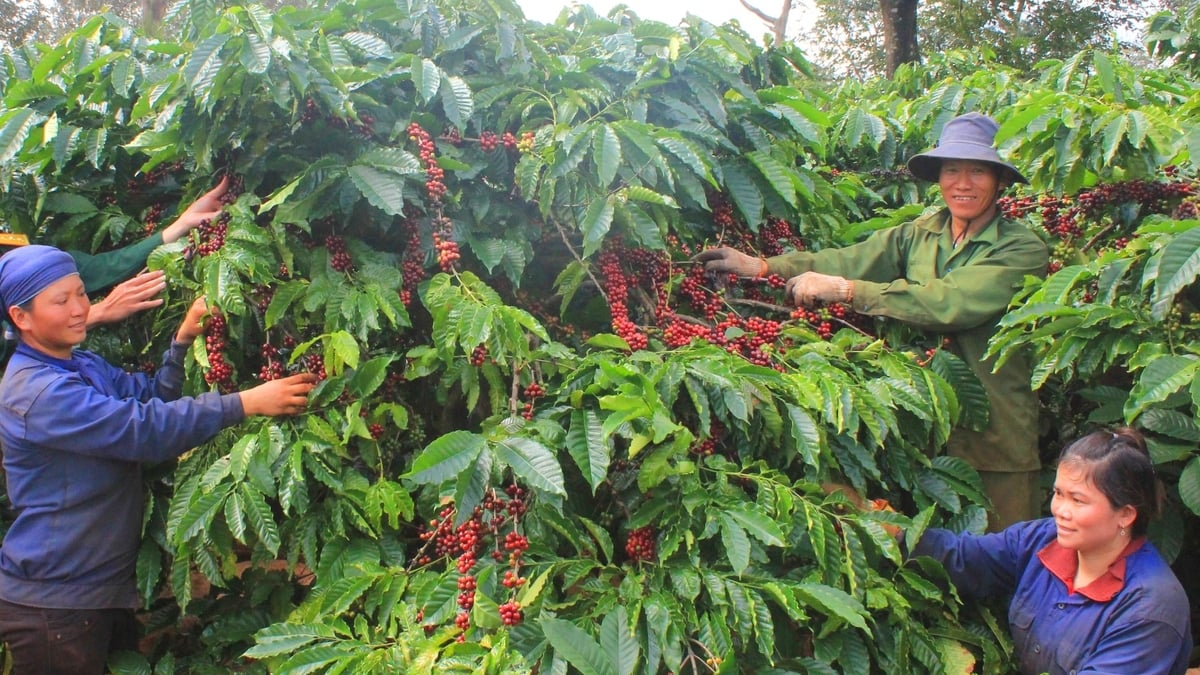
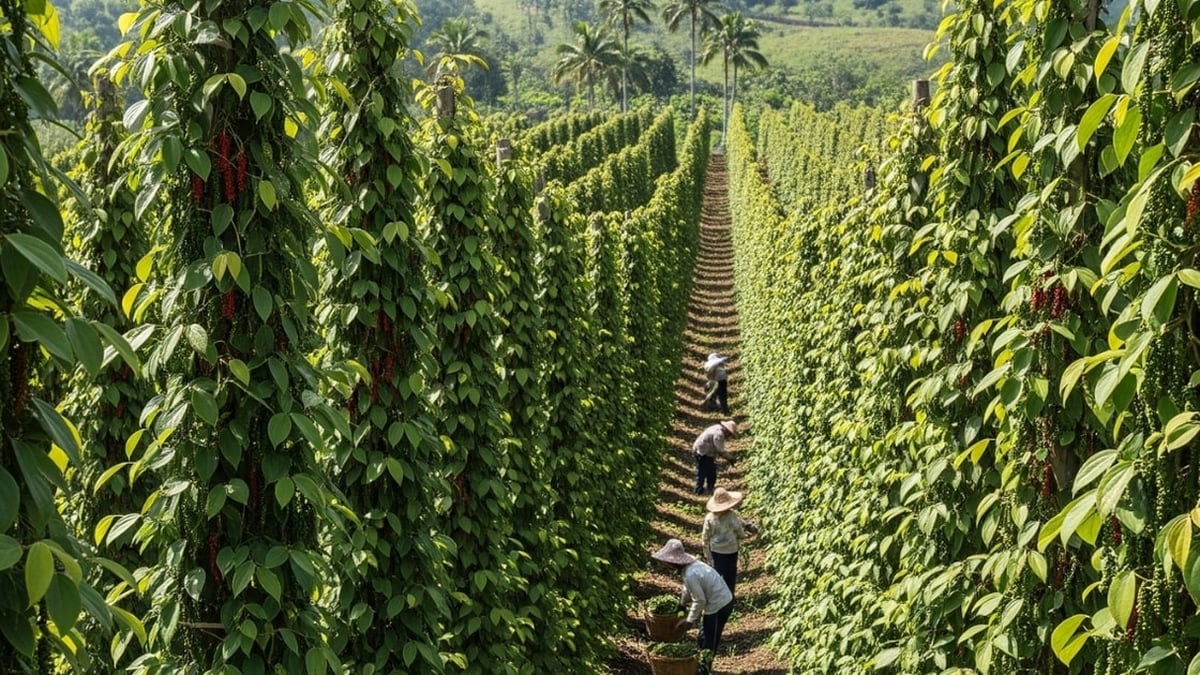

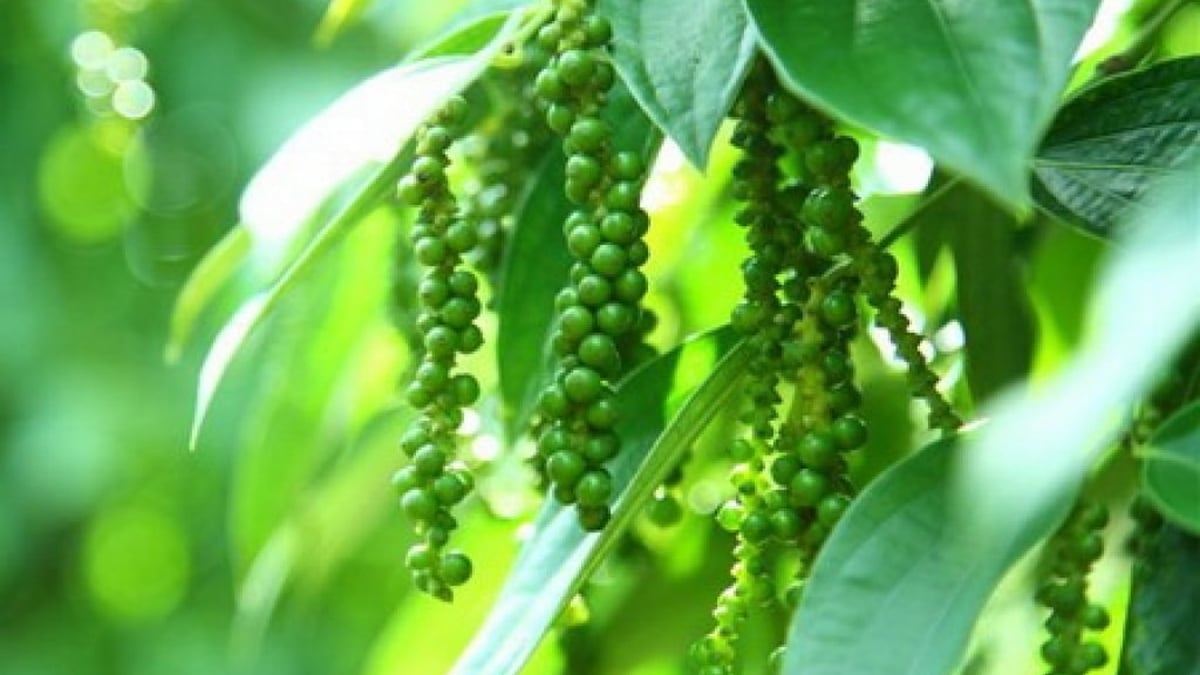
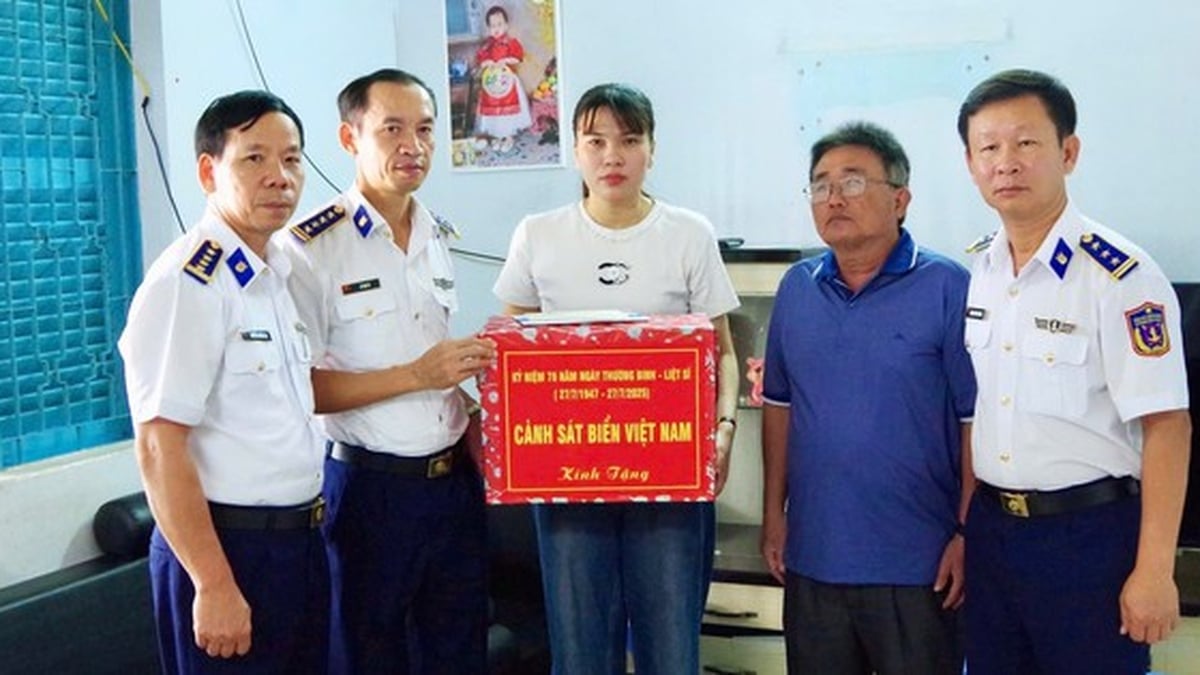
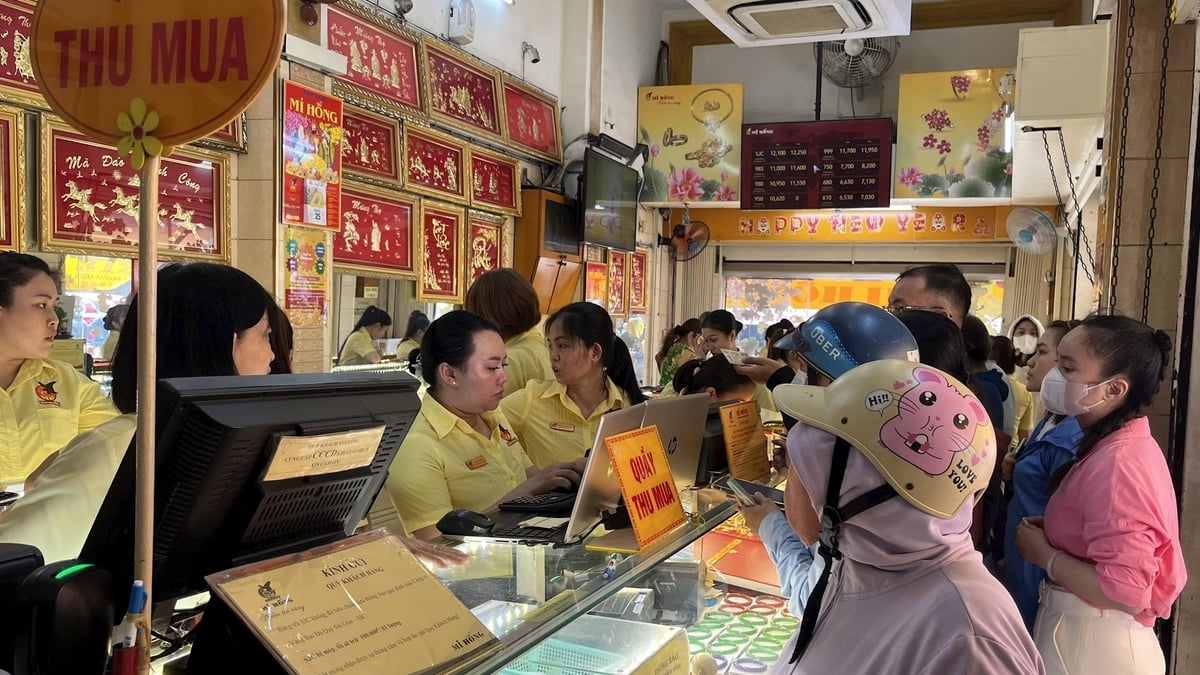

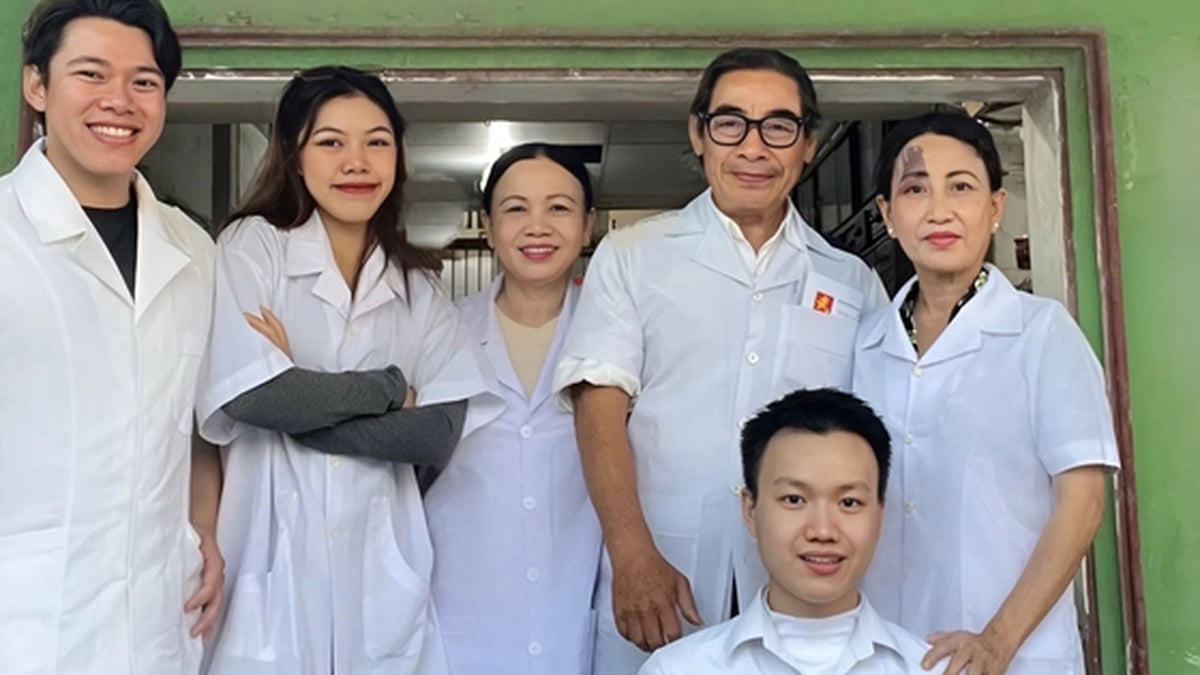






















































































Comment (0)